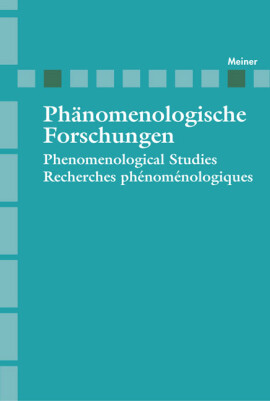
ZEITSCHRIFTENHEFT
Bd. 2012 (2012), Heft 0: Phänomenologische Forschungen 2012
Herausgeber:
Phänomenologische Forschungen, Bd. 2012
(2012)
In diesem Heft
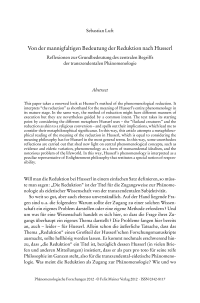
Von der mannigfaltigen Bedeutung der Reduktion nach Husserl
Reflexionen zur Grundbedeutung des zentralen Begriffs der transzendentalen PhänomenologiePhänomenologische Forschungen, Bd. 2012 (2012), Heft 0 : S. 5–29
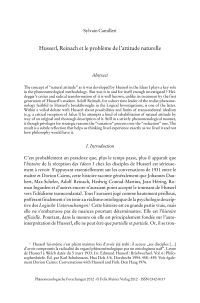
Husserl, Reinach et le probléme de l’attitude naturelle
Phänomenologische Forschungen, Bd. 2012 (2012), Heft 0 : S. 31–46
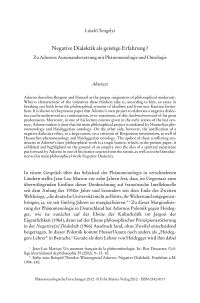
Negative Dialektik als geistige Erfahrung?
Zu Adornos Auseinandersetzung mit Phänomenologie und OntologiePhänomenologische Forschungen, Bd. 2012 (2012), Heft 0 : S. 47–65
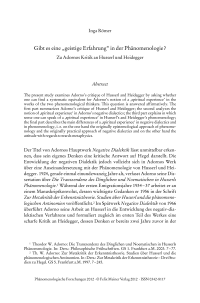
Gibt es eine „geistige Erfahrung“ in der Phänomenologie?
Zu Adornos Kritik an Husserl und HeideggerPhänomenologische Forschungen, Bd. 2012 (2012), Heft 0 : S. 67–85
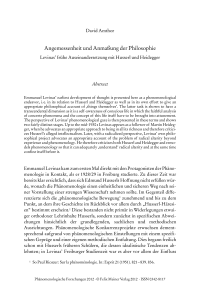
Angemessenheit und Anmaßung der Philosophie
Levinas’ frühe Auseinandersetzung mit Husserl und HeideggerPhänomenologische Forschungen, Bd. 2012 (2012), Heft 0 : S. 87–126
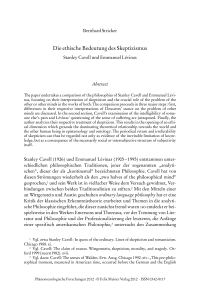
Die ethische Bedeutung des Skeptizismus
Stanley Cavell und Emmanuel LévinasPhänomenologische Forschungen, Bd. 2012 (2012), Heft 0 : S. 127–161
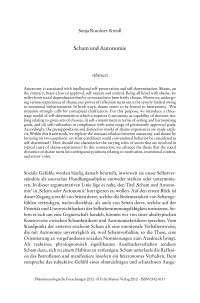
Scham und Autonomie
Phänomenologische Forschungen, Bd. 2012 (2012), Heft 0 : S. 163–191

Shame and Selfhood
Phänomenologische Forschungen, Bd. 2012 (2012), Heft 0 : S. 193–211
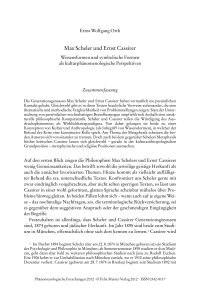
Max Scheler und Ernst Cassirer
Wissensformen und symbolische Formen als kulturphänomenologische PerspektivenPhänomenologische Forschungen, Bd. 2012 (2012), Heft 0 : S. 213–231
Der Gabediskurs: Ein Überblick
Phänomenologische Forschungen, Bd. 2012 (2012), Heft 0 : S. 233–253
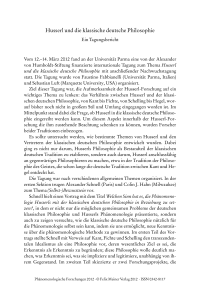
Husserl und die klassische deutsche Philosophie. Ein Tagungsbericht
Phänomenologische Forschungen, Bd. 2012 (2012), Heft 0 : S. 255–265
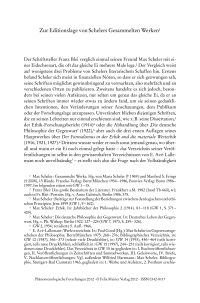
Zur Editionslage von Schelers Gesammelten Werken
Phänomenologische Forschungen, Bd. 2012 (2012), Heft 0 : S. 267–297


 Powered by CloudPublish
Powered by CloudPublish